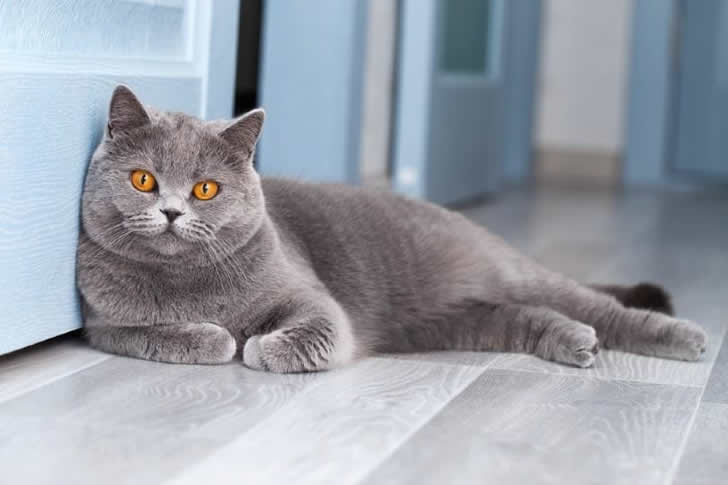When looking for the right cat breed, understanding each breed's unique personalities, needs, and characteristics is crucial. This guide will help you find the perfect feline match for your lifestyle.

Bringing a cat into your home can be one of the most rewarding experiences, but selecting the right feline companion requires careful consideration. Each cat has a unique personality, energy level, and care requirement, making it essential to find a match that fits well with your lifestyle and preferences. Whether you’re a first-time pet owner or a seasoned cat lover, here’s a comprehensive guide to help you choose your perfect feline match.
Cats, like people, have distinct personalities. While some are affectionate and social, others might be more independent. Understanding these personality traits can help you select a cat that best suits your home environment:
1. Affectionate Cats
These cats enjoy being petted and are often "lap cats." Breeds known for their affectionate nature include the Ragdoll, Persian, and Maine Coon.
2. Energetic Cats
High-energy cats need plenty of playtime and stimulation. Breeds like the Bengal, Abyssinian, and Siamese are known for their playful and active temperament.
3. Independent Cats
If you’re looking for a low-maintenance pet, an independent cat might be the best fit. These cats are content with minimal interaction and are often found in breeds such as the British Shorthair and Russian Blue.
4. Social Cats
Social cats are friendly with family members, strangers, and even other pets. Breeds like the Scottish Fold, Burmese, and Sphynx are known for their friendly and outgoing nature.
Your living situation and daily routine play a crucial role in determining the best cat for you:
1. Living Space
Apartment vs. House: If you live in a small apartment, choosing a less active breed might be wise. Cats that are content with indoor living, such as the Exotic Shorthair or Birman, adapt well to smaller spaces.
Outdoor Access: If you have a safe outdoor area, you might consider a breed that enjoys exploring outside, like the Norwegian Forest Cat.
2. Family Dynamics
Children: Families with young children might opt for patient and tolerant breeds. The American Shorthair and Maine Coon are excellent choices for households with kids.
Other Pets: Consider how the new cat will get along with existing pets. Social breeds like the Ragamuffin or Tonkinese are known to be more accepting of other animals.
3. Activity Level
Evaluate how much time you can dedicate to playing and interacting with your cat. Highly energetic cats need more engagement, while laid-back breeds are happy with less attention.
Different breeds have varying health and grooming needs that you should consider:
1. Grooming Requirements
Long-haired vs. Short-haired: Long-haired cats like the Persian require daily grooming to prevent matting, while short-haired breeds like the American Shorthair have lower grooming needs.
Hypoallergenic: If you have allergies, look for hypoallergenic breeds such as the Siberian or Balinese, which produce fewer allergens.
2. Health Issues
Some breeds are predisposed to specific health conditions. For instance, Persian cats can suffer from respiratory issues due to their flat faces, while Siamese cats may have dental issues. Research potential health concerns and ensure you’re prepared to manage them.
Deciding where to get your cat is an essential step in the process:
1. Adoption
Shelters and rescue organizations are excellent places to find cats of all ages and breeds. Adopting from a shelter not only gives a cat a second chance but often includes vet care and vaccinations as part of the adoption fee.
2. Breeders
If you prefer a specific breed, a reputable breeder can provide a cat with a known lineage and health history. Ensure the breeder adheres to ethical practices and provides proper care for their animals.
Before finalizing your decision, spend time with the cat to ensure a good match:
1. Behavior Observation
Notice how the cat reacts to you. Are they curious, shy, or immediately friendly? Their reaction can give you insight into their personality.
2. Interaction
Play with the cat and observe their energy levels. Ensure their temperament aligns with your expectations and lifestyle.
3. Ask Questions
If adopting from a shelter or breeder, don’t hesitate to ask about the cat’s history, health, and behavior. The more information you have, the better decision you can make.
Once you’ve chosen your perfect feline match, preparing your home for their arrival is crucial:
1. Essentials
Have all necessary supplies ready, including a litter box, food and water dishes, scratching posts, and toys.
2. Safe Space
Set up a quiet and secure area where the cat can adjust to their new environment without feeling overwhelmed.
3. Gradual Introduction
If you have other pets, introduce them gradually to ensure a smooth transition and reduce stress for all animals involved.
Choosing the perfect feline match involves understanding cat personalities, considering your lifestyle, and being mindful of health and grooming needs. Whether you decide to adopt from a shelter or go through a breeder, taking the time to make an informed decision will lead to a rewarding and loving relationship with your new furry companion. Welcome your new cat with open arms and enjoy the joy and companionship they bring to your life.
Explore the Tranquil Bliss of Idyllic Rural Retreats

Ultimate Countdown: The 20 Very Legendary Gaming Consoles Ever!

Understanding Halpin and its Influence

Affordable Full Mouth Dental Implants Near You

Discovering Springdale Estates

Illinois Dentatrust: Comprehensive Overview

Embark on Effortless Adventures: Unveiling the Top in Adventures Made Easy Outdoor Equipment

Unveiling Ossur Valves: Innovation in Prosthetics

Unlock the Full Potential of Your RAM 1500: Master the Art of Efficient Towing!
